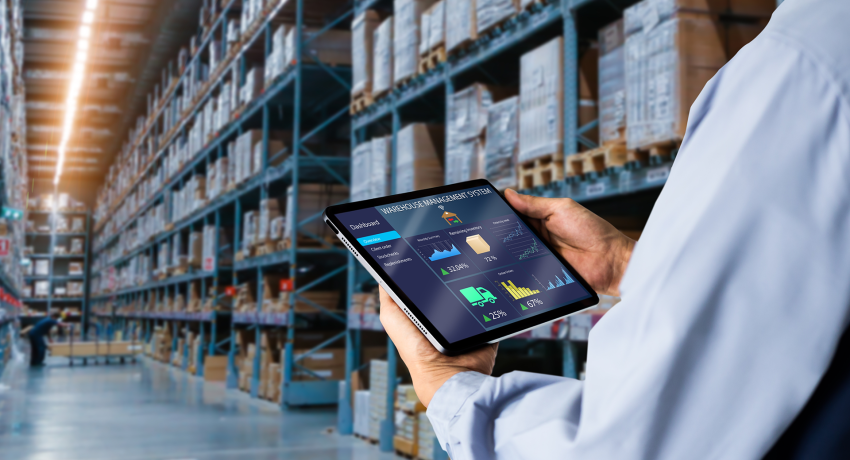
Supply chain management has become more complex and critical than ever. Traditional supply chain systems often fall short for industries like pharmaceutical manufacturing, where precision, transparency, and compliance are critical. Enter blockchain technology – a solution poised to transform how companies manage their supply chains.
The Value of Blockchain in Supply Chain Management
Blockchain technology, originally developed as the backbone for cryptocurrencies like Bitcoin, has evolved far beyond its initial purpose. At its core, blockchain is a decentralized digital ledger that records transactions across a network of computers. Each transaction is grouped into a block and linked to the previous block, forming a secure, transparent, and immutable chain of records. This inherent transparency and security make blockchain particularly well-suited for applications in supply chain management. By providing a single, tamper-proof source of truth, blockchain enables all parties within the supply chain to access real-time, accurate information. This ensures that every step of the supply chain—from raw material sourcing to final delivery—is visible and verifiable, increasing trust and efficiency across the entire process.
Why Companies Should Transition to Blockchain
Regulatory Compliance: Pharma companies operate under stringent regulations to ensure product safety and efficacy. Blockchain can provide an immutable audit trail that helps companies demonstrate compliance with regulations like current Good Manufacturing Practices (cGMP).
Risk Management: Counterfeit high-purity components significantly risk patient health and company reputations. Blockchain's traceability can help verify the authenticity of pharmaceutical products, reducing the risk of counterfeiting.
Supply Chain Resilience: The COVID-19 pandemic highlighted the vulnerabilities in global supply chains. Blockchain can enhance supply chain resilience by providing real-time visibility and enabling faster response to disruptions.
Customer Trust: Consumers increasingly demand transparency about the products they purchase, especially those regulated by the FDA. Blockchain can provide end-to-end visibility, enhancing consumer trust and confidence in the product.
Impact on the Pharmaceutical Manufacturing Industry
With the rise of complex global supply chains, ensuring the integrity of pharmaceutical products has become increasingly difficult. Blockchain technology offers a robust solution to these challenges by providing a transparent, secure, and immutable ledger of all transactions and processes. By integrating blockchain into pharmaceutical manufacturing processes, companies can significantly enhance the traceability of their products, streamline quality control measures, and foster greater collaboration among all parties involved.
Improved Drug Traceability: Blockchain can ensure that every step of the drug manufacturing process is recorded and verifiable. This traceability can help track the journey of a drug from the manufacturer to the end consumer, ensuring its authenticity and safety.
Streamlined Quality Control: Quality control processes can be enhanced by using smart contracts to automate compliance checks. This ensures that products meet cGMP standards without manual intervention, reducing errors and ensuring consistent quality.
Efficient Recall Management: In a product recall, blockchain can quickly identify the affected batches and trace their distribution. This rapid identification can help remove faulty products from the market more efficiently, protecting public health and reducing liability for manufacturers.
Enhanced Collaboration: Blockchain enables secure and transparent information sharing among supply chain partners, including suppliers, manufacturers, distributors, and regulators. This collaboration can lead to more efficient and effective supply chain operations.
Impact on cGMP Compliance
cGMP is the backbone of quality assurance in the pharmaceutical industry, ensuring that products are consistently produced and controlled according to stringent quality standards. Compliance with cGMP is a regulatory requirement essential for maintaining public trust and ensuring patient safety. Blockchain technology can play a key role in enhancing cGMP compliance by providing an immutable and transparent record-keeping system. This technology facilitates real-time monitoring, simplifies audits, and ensures data integrity, making it easier for pharmaceutical companies to adhere to cGMP standards and maintain the highest levels of quality and safety in their manufacturing processes.
- Immutable Records - Blockchain provides an unchangeable record of manufacturing processes, making it easier for companies to maintain accurate and reliable documentation required for cGMP compliance.
- Real-Time Monitoring - Continuous monitoring and recording of manufacturing processes on a blockchain can help companies identify and address deviations in real-time, ensuring adherence to cGMP standards.
- Audit Readiness - Blockchain's transparent and verifiable records can simplify the audit process by providing auditors instant access to comprehensive and accurate data, reducing the time and effort required for compliance verification.
- Data Integrity - Ensuring data integrity is a critical aspect of cGMP. Blockchain's cryptographic security ensures that data cannot be altered once recorded, providing a reliable source of truth for compliance purposes.
Blockchain technology offers a transformative approach to supply chain management by providing unparalleled transparency, security, and efficiency. In the pharmaceutical manufacturing industry, where maintaining the highest standards of quality and compliance is crucial, blockchain's ability to offer immutable records and real-time visibility can address many existing challenges. This technology enhances regulatory compliance, reduces risks, fosters greater consumer trust, and improves collaboration across the supply chain.
One thing to consider is that the FDA mandates that all records demonstrating cGMP compliance must be accessible for FDA inspection. This means that while blockchain could be part of a firm's quality management system, the system must ensure that all records are readily accessible to FDA inspectors. Records that are inaccessible or outside the scope of FDA inspection cannot be relied on to show compliance.
While blockchain technology can enhance data integrity and traceability, it must be integrated to meet existing FDA regulations and requirements. Firms considering blockchain should ensure their systems are validated and compliant with all relevant FDA guidelines to leverage the technology within their quality management systems fully.
Integrating blockchain into supply chain management holds immense potential for transforming the pharmaceutical manufacturing industry. By enhancing transparency, security, efficiency, and compliance, blockchain can address many of the challenges faced by the industry today. Companies embracing this technology can improve operational efficiency and build greater trust with consumers and regulators. As the pharmaceutical industry evolves, blockchain stands out as a critical enabler of a more secure, transparent, and resilient supply chain.

